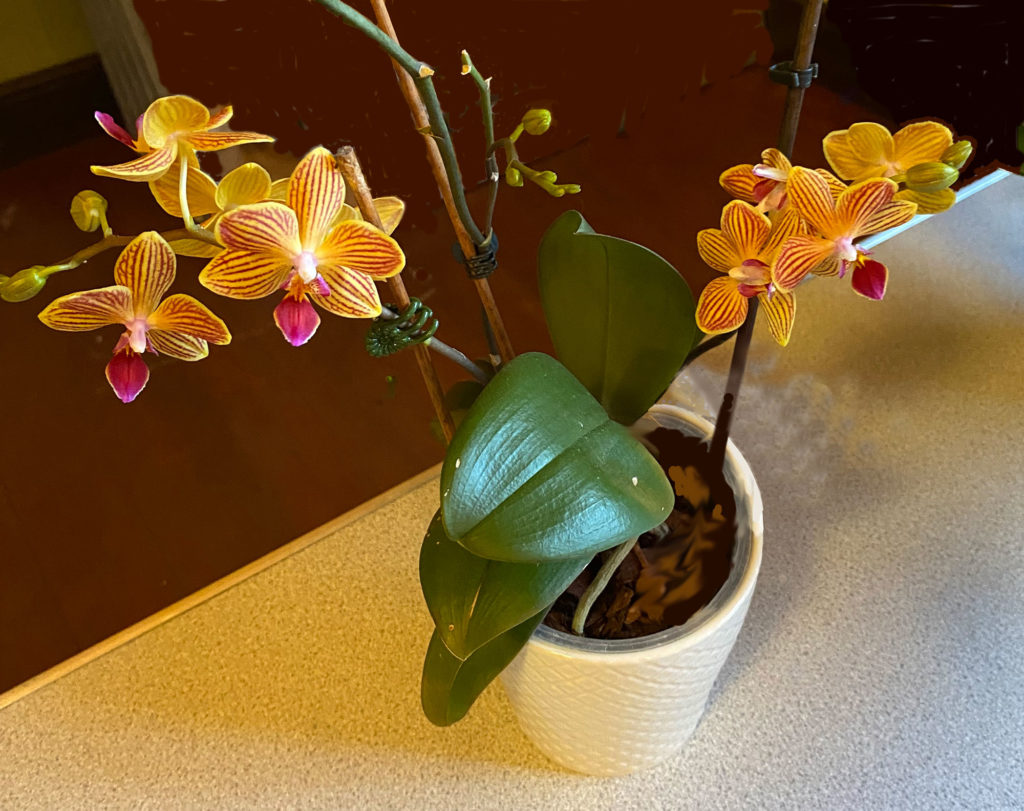In April we welcomed Dr Helen Milner, the Chair of the British Orchid Council, who gave us a talk on orchids in terraria. Starting with the invention in the 1850s of a glazed case by Nathaniel Ward designed to protect plants from the sulphurous fumes of the London smog. Ward noticed that fern spores trapped within a case germinated and grew and further experimentation led to English plants being successfully transported to Australia and Australian flora to England in Wardian cases.
Wardian cases developed into elaborate structures to grace the Victorian parlours and drawing rooms of the gentry and continue to be used to this day for growing small plants including orchids.
Helen gave us some useful tips on setting up such a case, which could be constructed from plastic sheet or one could use an old aquarium tank. Firstly any backing material such as bark slabs should be removable so that the interior can be cleaned of algae build-up. Air exchange is important and this can be achieved by using small computer fans in the roof to draw air in and to extract it. These fans can be bought on the internet as can LED lighting units. It is important to maintain high humidity through misting or keeping a reservoir of water in the case.
With rising heating costs and fewer growers using greenhouses a terrarium offers an attractive alternative for growing miniature orchids. It was a very informative talk that was much appreciated by the members.

